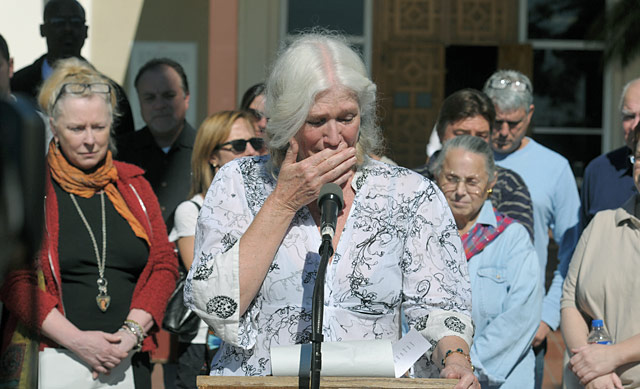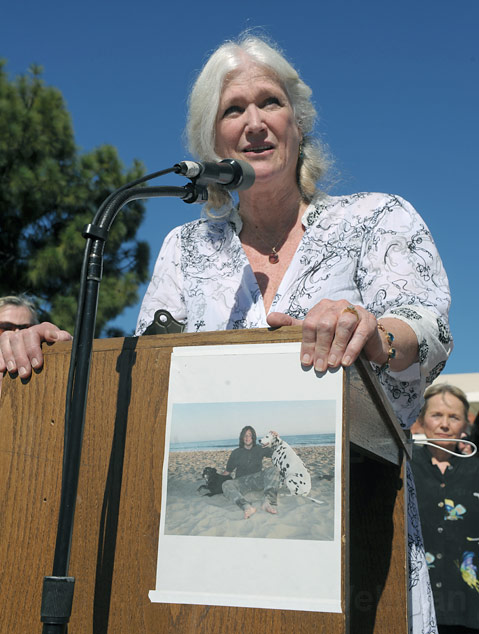Distraught Mother of Autistic Inmate Speaks Out
Advocates and Community Members Gather Against Incarceration of Mentally Ill

Nancy Speer, whose 22-year-old autistic son, Ben Warren, was jailed last year after he stole a county Foodbank van, spoke out against the imprisonment of the homeless and mentally ill during a press conference held in front of Santa Barbara County Jail on Thursday.
Warren, who is affected by Asperger’s syndrome and has suffered from psychosis since adolescence, was homeless and living on the streets prior to the theft. For the past 11 months he has been locked in County Jail, reportedly attempting suicide twice in that time.
Warren, said his mother, has also been moved to an isolated “safety cell” numerous times during his imprisonment, which Speer believes caused his current psychosis state, as well as his refusal to eat or drink. Although he had been transferred to the county’s Psychiatric Health Facility (PHF), Speer went on, Warren spent only two days there before being transferred back to isolation in jail.
“He has received little or no medical treatment for his mental illness and no counseling for his suicide attempts,” claimed Speer, flanked by a number of supporters. “Nearly two weeks ago he was observed in the fetal position, naked on a cement floor in a safety cell with only a blanket — nothing else.”

After meeting with a jail commander and a mental health care representative about Warren’s deteriorating condition, Speer recounted, she was not satisfied with their ability to properly monitor and treat her son’s condition. Warren was recently transported to Cottage Hospital — he had continued to refuse food — where he was treated for weight loss and malnutrition. He was then taken back to PHF where Speer was able to visit him. She was shocked at the physical and emotional state she found him in.
“He had lost a tremendous amount of weight, perhaps as much as 80 pounds,” described Warren tearfully. “His body and face were covered with wounds, cuts, and abrasions.”
With conflicting reports on the causes of Warren’s injuries (it’s unknown if they’re self-inflicted or not), Speer believes that Warren’s refusal to take his medications has contributed to his inability to take care of himself. Warren’s worsening condition during his time in jail prompted his mother to speak out against the imprisonment of other mentally ill people who, she feels, don’t receive adequate treatment.
“As things stand now, everyone here is probably in agreement that mental disorders and the criminal justice system can present a deadly combination,” Speer stated. “This combination has nearly taken my son’s life.”
Speer questioned why the mentally ill are commonly warehoused in jails where their conditions go untreated when, as she put it, they could oftentimes be placed in hospitals or health-care facilities and receive counseling and medical attention.
“By joining hands and working together, allowing our hearts to speak, we can find ways to redeem what has been lost and move forward together to create a system of true judicial, healthful, and compassionate correctional justice,” concluded Speer.
Speer went on to introduce Madeline Sharples, whose son committed suicide in 1999 due to his untreated bipolar disease. Sharples’s son took his medication sporadically and was considered “a master at acting normal” when talking to police or hospital officials, which, according to his mother, made it impossible for others to see that he was a danger to himself and others.
“Please don’t make the same mistake with Ben Warren,” pleaded Sharples. “He needs hospitalization and medication. He may be an adult, but he’s not acting like an adult in taking care of himself.”


